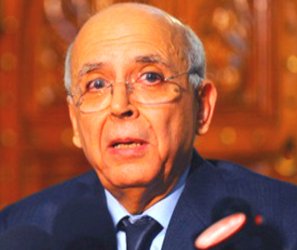|
Tunisia Politics | Society 84-year-old is new PM in Tunisia
84-year-old Essebsi was named Tunisia's new interim Prime Minister by interim President Fouad Mebazaa. The nomination was not done in consultancy with the Tunisian opposition and protest movement.
During yesterday's protests against Mr Ghannouchi and the RCD leaders, three persons were killed as police forces brutally tried to disperse the crowds in downtown Tunis. Consequently, today's protest marches against the interim government were even greater. Mr Ghannouchi today appeared on state television, saying he had resigned as Prime Minister as he was "ready to be the person taking decisions that could end up causing casualties," in reference to the ongoing protests. But the outgoing Prime Minister also warned against "a conspiracy being hatched against the revolution," repeating the interim government's warning against the current protesters as being outlaws dedicated to violence and looting. Also today's massive protest march in Tunis was attacked by riot police, shooting in the air and firing teargas at the masses. Unconfirmed reports from Tunis indicate several protesters have been wounded. The announcement of Mr Ghannouchi's resignation however caused jubilation among the protesting crowds. Protesters sent messages from the march saying that now, finally, the real transformation of Tunisia into a democracy could start. Police troops nevertheless have continued to attack protesters during the afternoon. By staff writer © afrol News - Create an e-mail alert for Tunisia news - Create an e-mail alert for Politics news - Create an e-mail alert for Society news
On the Afrol News front page now
|
front page
| news
| countries
| archive
| currencies
| news alerts login
| about afrol News
| contact
| advertise
| español
©
afrol News.
Reproducing or buying afrol News' articles.
You can contact us at mail@afrol.com









